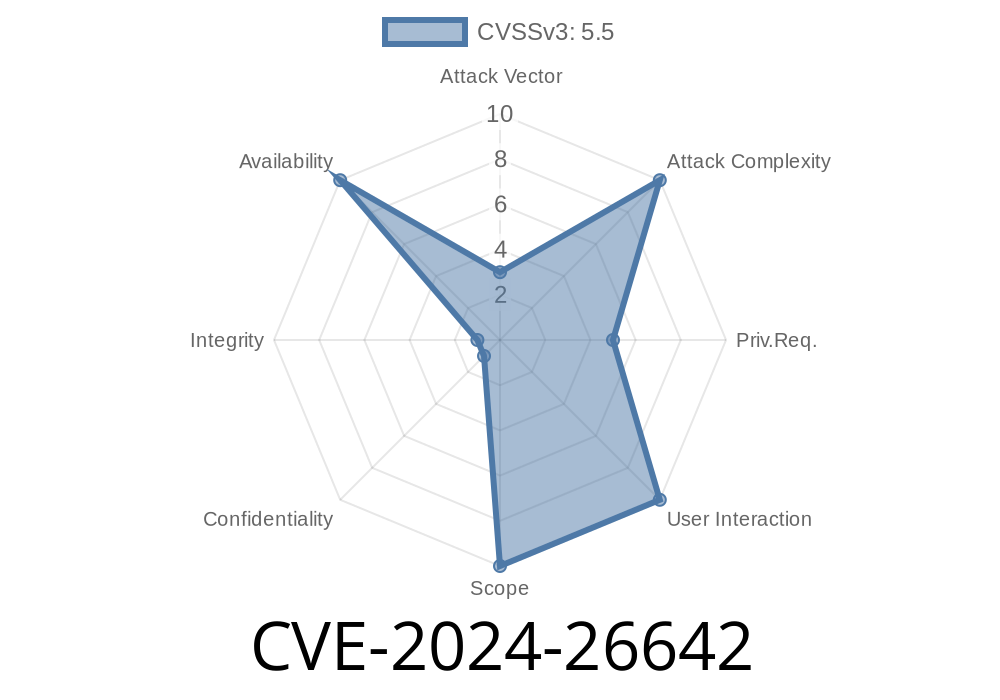On February 2024, security researchers and Linux kernel maintainers patched a significant vulnerability in the netfilter subsystem, tracked as CVE-2024-26642. Simply put, this flaw involved how anonymous sets—a clever way to group data—were being misused with a timeout feature in nftables, the modern Linux firewall. If exploited under certain conditions, this bug could let a user crash the kernel, and that’s never good. In this deep-dive, we’ll walk through what went wrong, review some code, and see how this matters for real-world sysadmins and developers.
What is Netfilter, What are nftables, and What is an Anonymous Set?
Netfilter is a framework inside the Linux kernel that allows programs to inspect, modify, and drop network packets—it's what forms the core of firewalls like iptables and nftables.
Anonymous sets are quick, on-the-fly sets defined directly in firewall rules, not given a name.
Normally, sets can have options like timeout (automatically remove old items). But anonymous sets with timeout flag? That’s where the trouble brewed.
The Vulnerability Explained in Plain English
For most users, anonymous sets *with* timeout were never safe or meaningful. When someone from userspace (like using nft CLI tool or an API) tried to play with this unusual combo, the kernel didn't always check it properly. This opened the door for undefined behavior, potentially leading to a crash—meaning a malicious local user could just knock your box offline.
There was one intentional exception: internally, the kernel uses something called NFT_SET_EVAL for backwards-compatibility (legacy meters). The rule was: timeout for anonymous sets is OK only for this one case—otherwise, block it hard.
The Patch: Reject Anonymous Sets with Timeout
Here’s a snippet of the important kernel code fix (commit link):
if ((priv->flags & NFT_SET_ANONYMOUS) && (priv->flags & NFT_SET_TIMEOUT) &&
!(priv->flags & NFT_SET_EVAL)) {
nlmsg_err(nlh, "Anonymous sets with timeout flag are not allowed");
return -EINVAL;
}
If it’s anonymous (+timeout), but not eval, reject!
Before this patch, the kernel did not always block this bad combo. With the fix, any attempt to use anonymous + timeout is stopped cold, keeping systems safe.
Exploitation: How Could This Be Abused?
This bug wasn’t remotely exploitable (no "hack the server from across the world" stuff). Instead, an attacker needed local access with privileges to fiddle with netfilter rules—like a user in Docker or certain systemd sandboxes.
`
2. Under a vulnerable kernel, this rule doesn’t get blocked—even though it’s invalid. This could lead to memory corruption or simply crash the kernel (DoS).
Example: nftables Rule That Would Get Blocked
# This will now FAIL on patched kernels
nft add rule inet filter input ip daddr { 10.1.1.1 timeout 20s } accept
*Error returned: 'anonymous sets with timeout flag are not allowed'*
Kernels from v3.13 up to the patch in early 2024
- Any Linux distro shipping those kernels with unpatched net/netfilter/nf_tables
*Good news:* Almost all major distributions patched quickly (see Debian advisory and Red Hat bug 2274088).
Upstream fix commit:
https://git.kernel.org/pub/scm/linux/kernel/git/torvalds/linux.git/commit/?id=f5e3dd3dcdd582eb9cf2db52da2ccb2c8c5e9314
CVE-2024-26642 at NVD:
https://nvd.nist.gov/vuln/detail/CVE-2024-26642
Debian Security Advisory:
https://www.debian.org/security/2024/dsa-5656
Red Hat Security Advisory:
https://access.redhat.com/security/cve/CVE-2024-26642
No quick workaround: There’s no real way to disable the problematic feature without patching.
- Audit usage: If you run custom nftables scripts or containers with firewall rights, check for any use of anonymous sets with timeout.
Conclusion
While CVE-2024-26642 isn’t a remote, “internet-worm” level bug, it’s a good reminder that even advanced kernel features need guardrails. With a tiny bit of code and a rare combination of options, a perfectly shielded Linux system could be crashed by a savvy user. Make sure you’re up-to-date, and thank the developers for their fast response!
If you liked this exclusive breakdown, follow for more kernel bug stories demystified.
Timeline
Published on: 03/21/2024 11:15:28 UTC
Last modified on: 03/13/2025 21:20:08 UTC
